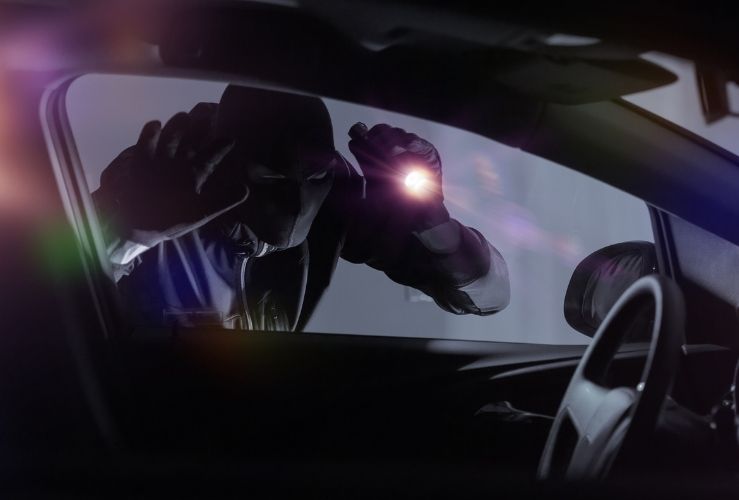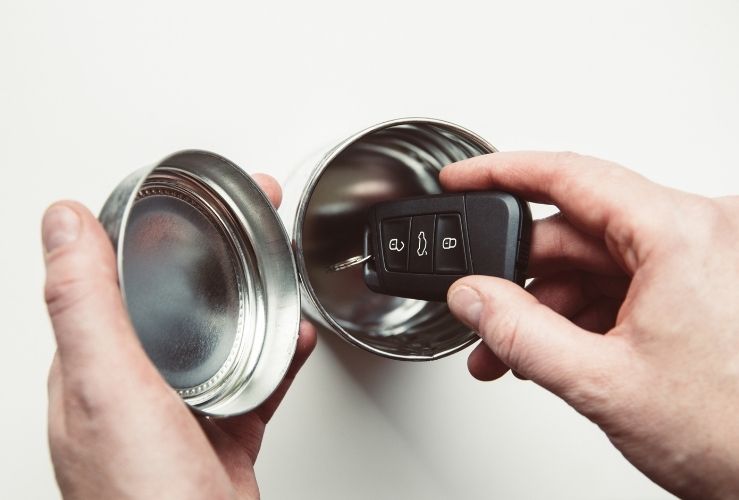Car thefts fell sharply in 2020/21, to 89,400, down from 113,000 the previous year. This fall has been attributed to an overall fall in crime due to the pandemic.
Yet despite the recent reduction in crime, motor vehicle thefts remain a serious problem in the UK.
From 2014/15 to 2018/19, motor thefts rose notably, a situation that correlates with cuts to police budgets by central government.
As a sense of normality returns to the UK, some fear crime - including car crime - will rise again.

Steps you can take to protect your vehicle
Sadly, around 58% of vehicle crimes go unsolved. But there are some straightforward steps you can take to dramatically reduce the chances of being a victim - and make selling the vehicle or stolen parts much more difficult for the criminal.
It’s frustrating to pay out for such measures, but the alternative could be worse. As the Dutch philosopher Desiderius Erasmus said, "Prevention is better than cure".
Lock your car
It sounds obvious, but around 44% of cars are broken into via an unlocked door.
Double checking this simple measure could cut your chances of being a victim by nearly half.

Park in a well-lit area
Thieves are deterred by vehicles that are parked in well-lit areas - such as under lamp posts. It makes both vehicle and thief more visible to passers-by and CCTV.
Parking in a dark area could embolden a would-be car thief.
Also try to park as near to your home as possible.
Don't leave valuables on display
Aside from stealing the vehicle itself, thieves are attracted to valuables left unattended inside. Make sure you take such items with you, or at least conceal them from view.
Additional measures
Anti-theft screws on number plates
Fix number plates with anti-theft screws. The special tools needed to remove them are unlikely to be carried by a thief.
Such criminals fit stolen plates to other vehicles to help them avoid detection - perhaps after stealing fuel or committing some other crime.
Keep car ownership details in your home.
If a thief steals your car and your VC5, it can be easier to sell on. Your VC5 may also be used for identity theft crimes.
Look for "Parkmark" car parks
"Parkmark" car parks meet particular security criteria.
Don't leave car keys on display in your home.
Secure alloy wheels with anti-tamper wheel nuts.
Don’t leave tailgate racks, top boxes or roof racks attached to your vehicle overnight.
Protect your catalytic converter - Use anti-theft devices such as the Catloc; park near walls to restrict access; install a tilt alarm; register your converter and use a forensic marker to make the thieves' lives harder.

Keyless theft
Keyless car theft - or relay theft - involves criminals locating cars with keyless entry by using special equipment - namely a relay amplifier and a relay transmitter.
Criminals then work in pairs to identify the owner's home.
The individual with the amplifier then aims to amplify the signal from the keys in the property, which will be picked up by the transmitter, held by the second individual.
The transmitter will then send a signal to the car, which thinks the owner wishes to gain entry, and opens the locks.
Avoid keyless car theft by:
- Storing keys in a metal tin (blocking the the signal from amplifiers)
- Keeping keys in an RFID-blocking pouch
- Using a steering lock or wheel clamp
- Parking in a way that restricts access to your vehicle
- Removing all valuables to make your car less attractive to thieves
Additional security devices for your car
- GPS tracker - this means you can track your car’s location from your smartphone. Cost: £35 - £200.
- Vehicle recovery system - these systems work like an electronic homing device and help police to track your vehicle - but they can cost upwards of £400.
- A hidden kill switch - these devices cut electrical current to a vital part of your car, such as the fuse box or ignition. They must be hidden from view. They cost as little as £10 but require a trained mechanic to install.




